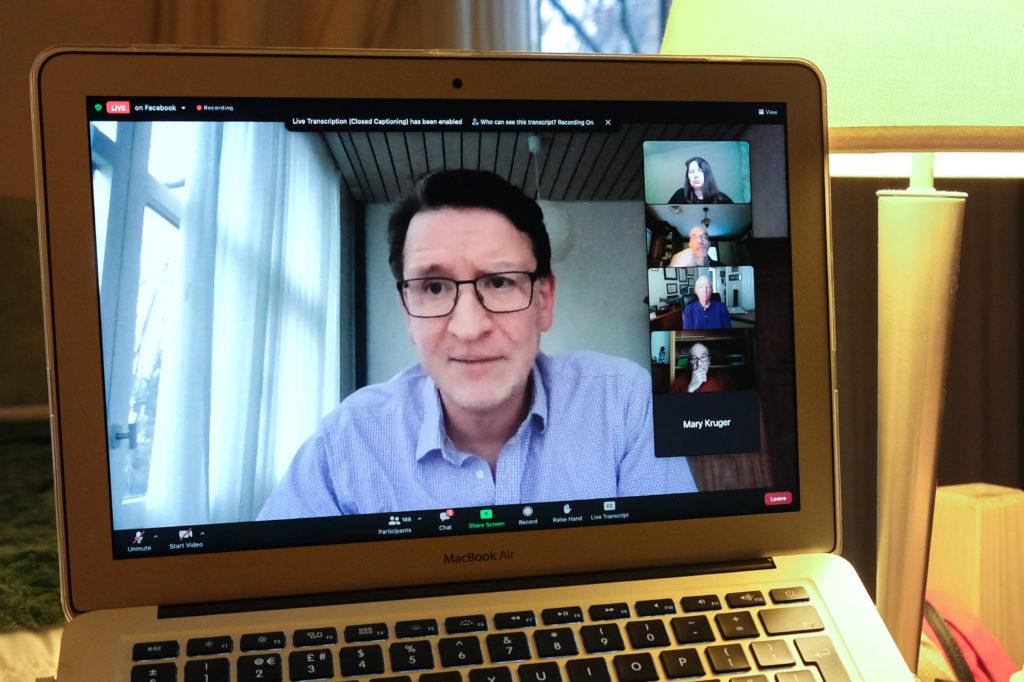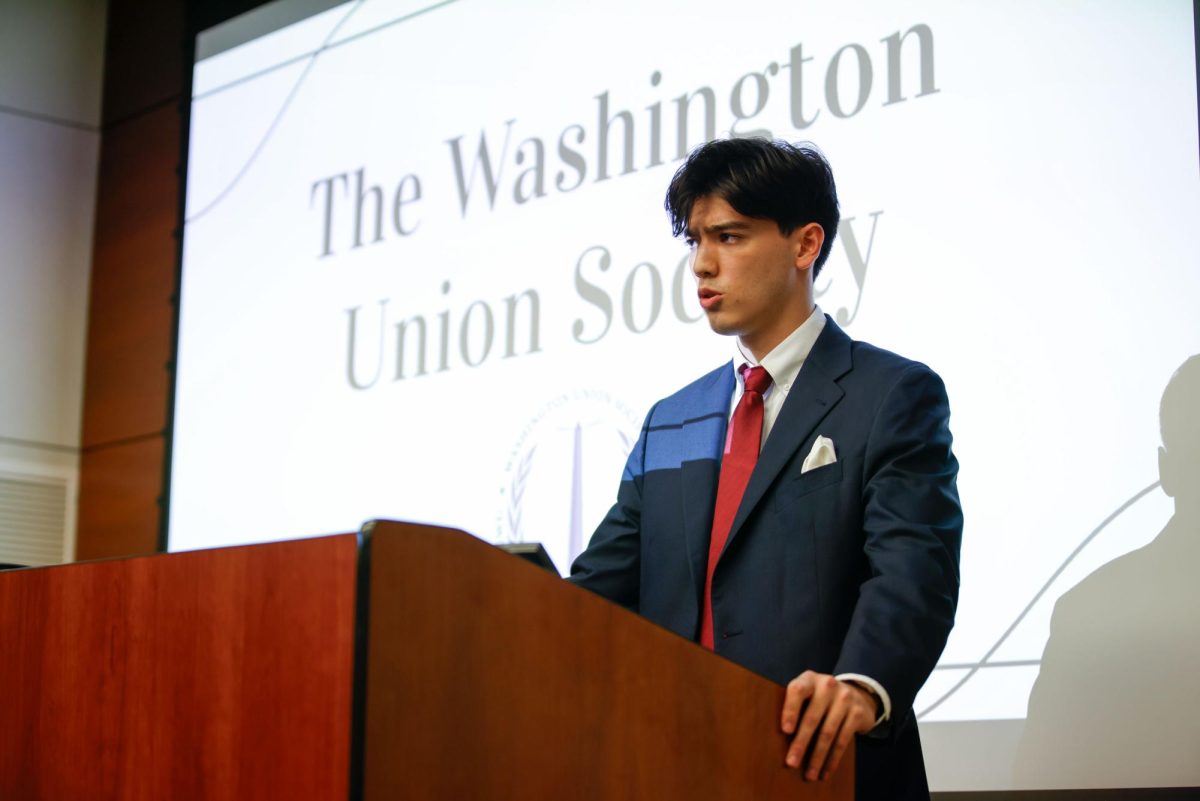A panel of experts discussed the ongoing conflict between Russia and Ukraine during a virtual event Friday hosted by the Elliott School of International Affairs and Ponars Eurasia, a research organization.
Five professors of Ukrainian descent with expertise in political science and international affairs and security addressed the causes and history behind the conflict, its effects on the Ukrainian people and potential solutions to the current tensions. Nearly 200 participants attended the event, which was moderated by Henry Hale, a professor of international affairs and political science.
Oxana Shevel, an associate professor of political science at Tufts University, said Ukraine’s sovereignty and governance over disputed territory have driven much of the conflict, even though recent media attention has focused on Ukraine’s wish to join the North Atlantic Treaty Organization.
“Ukraine has denied agency and essentially [Russian President Vladimir] Putin wants to limit Ukraine’s sovereignty so it is about NATO, but it’s not all about NATO,” she said.
Shevel said Ukraine’s ambitions to join NATO are contributing to the tensions between Russia and the West because of the Kremlin’s opposition to NATO expansion. Ukraine first announced its intentions to join NATO in 2008, a proposal that caused disagreement within and outside of NATO countries, but escalated further when Putin asked NATO leaders to swear off any further expansion earlier this year.
“We essentially have three interlocking crises of U.S.-Russia relations, NATO-Russia relations, Ukraine-Russia relations,” she said. “There are conflicting opinions about how to prioritize these issues.”
Sergiy Kudelia, an associate professor of political science at Baylor University, said the crisis over the disputed Donbas region between Russia and Ukraine comes from a failure in diplomatic talks. He said world leaders have not engaged in direct diplomatic negotiations around the disputed territory, which could help to end the crisis.
“The rising tensions on the Russian-Ukrainian border are symptomatic of the breakdown of diplomatic efforts to resolve the conflict of Donbas,” he said.
Kudelia said the Minsk Protocol, an agreement signed between Ukraine and Russia in 2014 to end a border dispute between the two counties, can be a useful way to push negotiations forward. He said the Minsk Protocol laid out policies that allowed the disputed parts of Eastern Ukraine to have political autonomy from a central government, which could give Ukraine a starting point in negotiations with the Kremlin.
“For Russia, the Minsk Agreements offer the solution not only for solving the conflict but also for addressing broader security concerns associated with Ukraine’s push for NATO membership,” he said.
Volodymyr Dubovyk – an associate professor of international relations and the director of the Center for International Studies at Mechnikov National University in Odessa, Ukraine – said the ongoing dispute between Ukraine and Russia is long standing, even though the international media attention has been more recent.
“The Russian intimidation has been ongoing for years now since 2014 so this is just a new phase – a new level of what we’re seeing,” he said.
Tetyana Malyarenko, a professor of international security and European security at the National University Odessa Law Academy, said the economic impact of the crisis is often overlooked because of greater public interest in military and diplomatic threats, despite the devastating financial impact on the Ukrainian people.
“There are years of Ukrainian hybrid war against Russia,” she said. “Ukraine’s economy lost about $150 billion, about 20 percent of Ukrainian GDP, and has not yet reached its position as of 2013.”
Malyarenko said the Ukrainian government needs to revamp its military and focus on the emerging threat from Russia in an invasion with “hundreds of tanks and millions of troops” to respond to the root of the economic issues plaguing the country. She said even most ethnic Russians living in Ukraine do not support Russian involvement in the country because Ukraine guarantees more legal and political freedoms for its citizens.
“For many Russian speakers and ethnic Russians who live in Ukraine, Ukraine is the better choice because of its commitment to European values of human rights and democracy,” she said.
Olexliy Haran, a research director of the Democratic Initiatives Foundation, an Ukrainian think-tank, and a professor of political science at the Kyiv-Mohyla Academy in Ukraine, said the public opinion support for NATO has varied among the Ukrainian population. But he said support increased drastically in 2014, after the Russian military occupied Crimea and parts of Eastern Ukraine last October, and has increased again recently following tensions on the Ukraine-Russia border.
Haran said prior agreements between Ukraine and Russia seemed like a step in the right direction at the time but also pointed out the failures of Russia to keep the country’s end of the bargain. He said Ukrainian President Volodymyr Zelensky has failed to reach a peaceful resolution with the Russian government, which has left many Ukrainians vulnerable to Russian military attacks.
“Zelensky made very serious steps toward Putin,” Olexy said. “And did we reach a ceasefire? No – Putin continued to shell Ukrainans, not only praying on soldiers but also Ukrainian civilians.”








